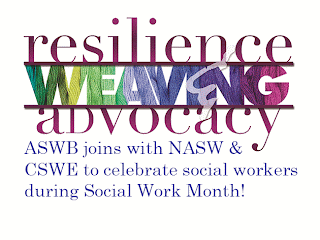Wait! I thought. I'm documenting my visit with my patient, not writing a story! I hit the delete key. I stared at my computer screen, and sighed. Then started to type again.
Patient displayed contentment when speaking about her grandchildren.
This sounds more professional, I convinced myself.
That was another moment where I felt the urge to write. Not my social work notes, not my professional assessments. But my stories.
I was immensely grateful for what was happening right there. That was what I had been waiting for all this time--The miracle of finding inspiration.
After a year of inactivity, I'm back to my blog. The place where I can share uplifting and heartfelt stories from my personal and professional journey. The place where I find my muse.
Thank you for those of you who have waited this long. And a special thank you note to my blogging friend Steve Elsaesser who I met during a recent vacation in Miami. Steve helped me to understand that inspiration is what keeps the flow of our blog stories or poetry. Because we find solace in word.
9/27/2015 UPDATE.
My heart is heavy as I learned today that my friend Steve passed away a week ago. Steve was a friend, and a mentor who reached out to many people. Steve will be terribly missed.
My heart is heavy as I learned today that my friend Steve passed away a week ago. Steve was a friend, and a mentor who reached out to many people. Steve will be terribly missed.











